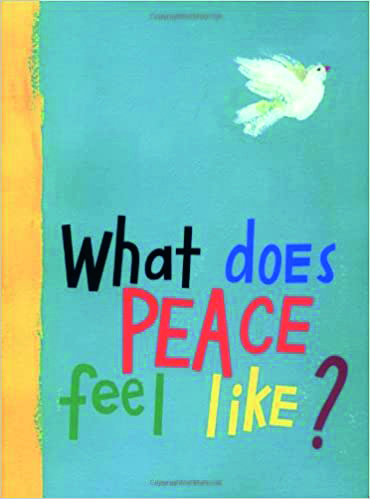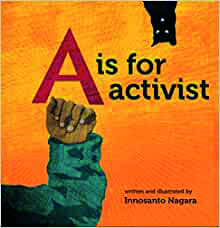
 Peace, justice and strong institutions are the aim of SDG 16 because conflict, insecurity, weak institutions and limited access to justice remain a great threat to sustainable development.
Peace, justice and strong institutions are the aim of SDG 16 because conflict, insecurity, weak institutions and limited access to justice remain a great threat to sustainable development.
YOU CAN
- Introduce the children to the key terminology: ‘peace’, ‘justice’ and ‘conflict’ and discuss what these words mean.
- Discuss how we should all have ‘rights’ and help the children to understand what this means by watching this short film by Amnesty International UK: https://bit.ly/3pNHxtq. Watch, pause and discuss the rights. You could also share the accompanying Amnesty picture book We are all born free.
- Encourage each child to reflect upon what they consider is a right in the setting and devise your own set of rights. Discuss how difficulties could start. Draw images to highlight individual rights considered. For example, this could be a right to play outside or a right to get upset.
- Ensure that the adults in your setting listen to children and they feel respected.
- SDG 16.7 is to: ‘Ensure responsive, inclusive, participatory, and representative decision-making at all levels.’ Introduce the idea of justice to children using fairness. Develop fair rules for the setting together.
- Discuss when the children have felt something was not fair to them. What did it make them feel? Discuss feelings – ask the children to think of any emotions or words associated with them; for example, ‘happy’, ‘sad’ or ‘angry’. Brainstorm times when they may feel these emotions. What stops them being happy?
- Enjoy a happiness sing, dance and clap-along with: https://bit.ly/3hYgMhe.
- Reflect on key issues that may come up as a result of your discussions, such as being unkind or fighting.
Learning links
Development Matters (2020, p30) ‘Help children to elaborate on how theyare feeling.’



Extension activities
- Have a quiet area with cushions and fabrics.
- Play calm music.
- Introduce the word ‘peace’ – how can these difficult situations be solved?
- Read What Does Peace Feel Like? by Vladimir Radunsky to start a discussion about peace.
- Also share the book Kindness Makes Us Strong by Sophie Beer. Reflect on the word ‘strong’ and recognise that there are two ways of viewing it – strong physically and strong as a character trait. Design a strong obstacle course with children lifting and feeling how heavy items are. Also highlight strong characters in children’s favourite books or films who fight for justice and fairness. You can link this back to SDGs 5 and 10.
Learning links
Birth To 5 Matters (2021, p5) ‘reflect contemporary issues such as the impact of the Coronavirus, Black Lives Matter, ensuring sustainable development …’
Extension activities
- Read together A is for Activist by Innosanto Nagara, an engaging book that inspires hope for the future, and calls children to action. The author’s aim is to create a space for children to grow up in that is unapologetic about activism.
Learning links
EYFS (DfE 2021, p12) ‘Managing self – Explain reasons for rules, know right from wrong and try to behave accordingly.’
Extension activities
- Encourage children and staff to be more proactive and supportive of listening to each other’s perspective. Allow choice to be from the children.
- Use Hart’s Ladder of Participation in your setting discussions: https://bit.ly/3HZbuwP.
- Display the UN Convention on the Rights of the Child and incorporate it into planning: https://bit.ly/3HZgm4O.
Learning links
Birth To 5 Matters (2021, p9) ‘Children’s right to be heard and have their views taken seriously was established via Article 12 of the UNCRC.’
Reggio Emilia considered a Bill of Rights which recognised three voices: the child, the teacher and the parent. Use this as a starting point for developing positive relationships: https://bit.ly/3MArhWd.
- Entries are open for NW’s Eco Friendly Early Years Award – find out more: https://bit.ly/3D46jL5
FURTHER READING
‘An Early Childhood for Sustainability resource that embeds the SDGs and STEM into pedagogical practice’ by Boyd, Neame, King and Mann (NFCE Publications), download free at: https://bit.ly/33NkF5w
Diane Boyd is a senior lecturer, early years, at Liverpool John Moores University, d.j.boyd@ljmu.ac.uk









